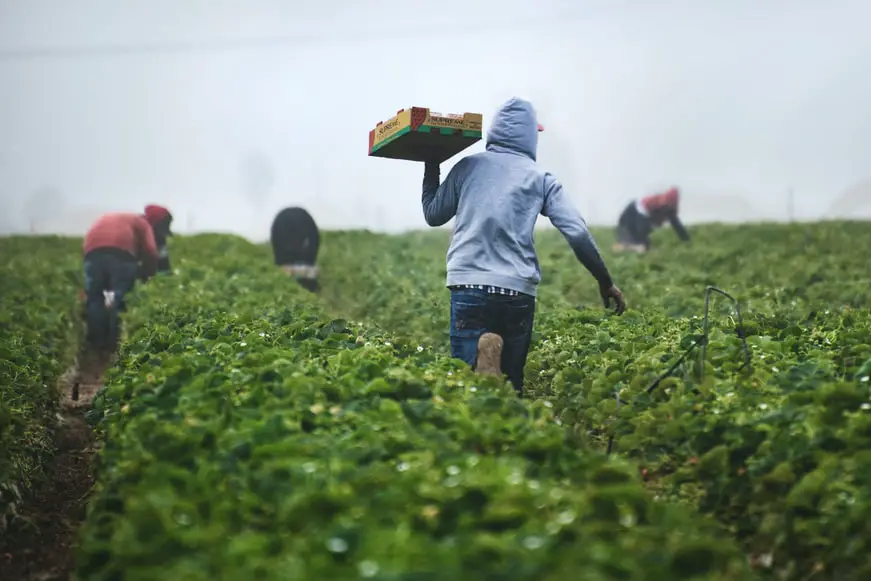What is the Great Resignation?
The COVID-19 pandemic has thrust the United States into a mass resignation that’s forced employers to think more critically about employee satisfaction.
A recent survey from Microsoft found that 41 percent of employees worldwide are looking to quit their jobs this year in the U.S., as millions quit monthly with no end in sight.
According to the Bureau of Labor Statistics, 20 million Americans have left their job since April.
But this trend isn’t just a U.S. phenomenon. In Germany and throughout Europe, many companies are short of skilled workers. Currently, there are at least 400,000 professional job vacancies. Data collected from the OECD shows that in 38 member countries, at least 20 million workers have not returned to work since the COVID-19 pandemic began. In Vietnam, many low-paid garment workers have not returned to factories. In the Caribbean, one in six workers aged 18 to 29 has left the workforce.
Why did people start quitting their jobs?
Many of us would think that people started to quit their jobs due to one or more of the following reasons.
- Unemployment benefits
- Inadequate pay
- Caregiving
- Relocation
- Fear of in-person interaction
However, this is just half the story. Not everyone is leaving because of unemployment benefits from their government, or they have to care for a child or an elderly at home, or because their family has relocated during the pandemic. The elephant in the room is work-life balance.
How has it changed peoples’ lives?
For years, our lives have revolved around the work we planned for our week. Based on our work calendar, we met people only over weekends. We socialized only on off days, and we skipped weddings for work. We prioritized work meetings over parent-teacher meetings. We compromised on vacations to save unpaid leaves. The pandemic has changed all of this. It held up the mirror; it forced people to see the unpredictability of life to reflect on what really matters to them.
Many realized it’s not the work or at least not their present job. So millions began re-imagining their lives. Some locked up their city homes and moved to suburbs, then realized they didn’t want to wait until retirement for greener pastures. Others quit full-time jobs and began freelancing, realizing they wanted to spend more time at home or with family. And many others decided to quit and go back to school; they realized life was too short to stick it out in the wrong career. Many turn their hobbies into full-time jobs because, well, why not? If there is one thing the pandemic has taught us, it’s that life is short.
What to expect?
The Great Resignation movement swept through the United States in 2021, with 4.5 million people leaving their current job in November alone—A phenomenon that doesn’t appear to be ending anytime soon.
We can expect this trend to continue to impact employers across the U.S., and around the world. An increased shortage of skilled workers may force employers to increase pay and benefits, and we can expect to see a greater emphasis on work-life balance in the years to come. We can also expect to see workers leave sectors and entire industries to start fresh.
In fact, a recent study from ResumeBuilder estimated that in 2022, as many as 32% of U.S. workers would leave not only their jobs but their careers behind to start afresh in new industries. So, where does this leave the agriculture sector, and will the Great Resignation affect employee retention in 2022?
What will it mean for the agriculture sector?
The agriculture industry may be better off than many other sectors amidst the worker movement. In a recent report from Fast Company, the agriculture industry has seen some of the highest employment growth since March of 2021, along with arts and entertainment, food service, and accommodation.
“These sectors are to be expected as many were shut down during the height of the COVID-19 pandemic in 2020,” said the report, “and the rush to resume in-person, non-desk-bound work, like hiring at reopened bars and restaurants, stormed back as pandemic conditions improved.”
And with all this employee growth, tenure in the agriculture sector has also seen steady growth throughout the last decade as well. According to a 2021 study from CapRelo, the agriculture industry has had some of the highest median years of tenure for the private sector jobs researched.
That study, which tracked Bureau of Labor Statistics data from 2010-2020, indicated that employees are staying in agriculture longer. In fact, the average years of tenure for employees are at 4.2 years. The most extended average years of employee tenure were in the manufacturing, healthcare, and insurance industries, at 5.6, 5.5, and 5.4 years respectively.
While the agriculture sector may not be immune to the effects of the Great Resignation, it certainly looks like some of these woes will be avoided in 2022.


